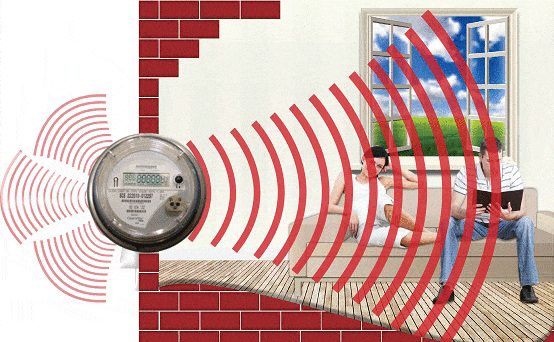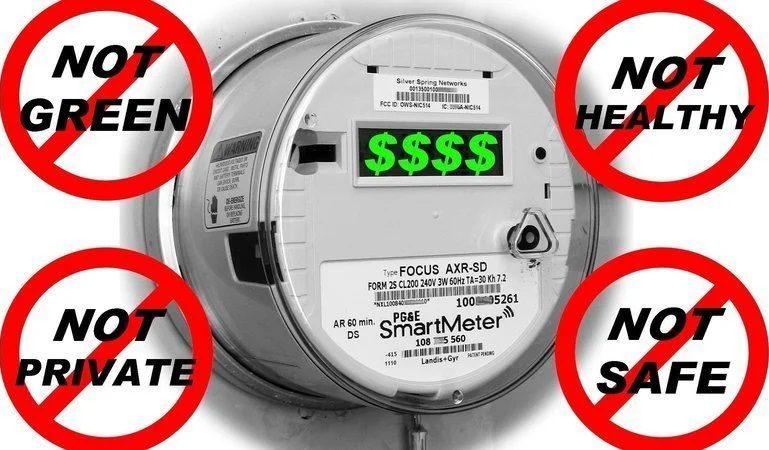Smart meters are closing in for the kill
I’m being harassed. Unfortunately, it appears that there’s nothing I can do about it. I don’t tick any of the boxes which would qualify me for protection under the law.

I’m not being harassed by a partner or family member; by a neighbour, a landlord, a creditor, an online stalker, or any other person.
I’m not being persecuted on account of my race, my sexuality, my religion, or even my age.
You couldn’t say that the harassment was inspired by hatred or discrimination. In fact, I’m only one amongst millions being targeted in the same dispassionate way.
Nevertheless, I’m being harassed repeatedly, and the harassment is leaving me feeling distressed, offended, and very irritated.
Who is harassing me? My energy provider. They really, really want me to have a smart meter, and they won’t take no for an answer.
Rolf Norfolk has recounted in TCW his experience of ‘fighting the Octopus’. In my case the emails started several years ago. ‘Discover the benefits of a new meter, Gillian!’ they warbled. ‘A little reminder, we could replace your meter’ or ‘Millions of homes benefit from smart meters. Yours could too.’
Eventually I responded, saying that I’d investigated the pros and cons, and had come down on the side of the cons.
For a while, the nuisance stopped. Then the emails began again. I received an apologetic note, saying the company understood my position, but were under government orders to go on harassing me anyway.
Now it seems they’re closing in for the kill. A ‘smart meter appointment card’ has come through the letterbox. ‘Your new smart meter is ready and waiting for you,’ it announces. ‘Just tell us when we can pop round to fit it.’
So that’s that. A smart meter is lurking in the wings, with my name on it. If you haven’t been smartened up yet, there’s one with its eye on you, too, and sooner or later it will pounce. Working in collusion with ‘independent’ energy companies, our smart-Alec government is imposing yet another of the intrusive provisions lurking incognito within its ‘sustainability’ agenda.
These ‘smart’ meters offer absolutely nothing to you and me, while the expense of installing them and of the advertising campaigns nudging us towards them is being taxed back via our energy bills, adding to the cost of living.
The sales patter is that ‘you’ll be able to track your energy in £ and p and spot ways to save energy at home’, but the only sure way of cutting energy costs is to use less energy, and there’s no need for any glitzy new technology to show you how.
Many of us already go beyond such standard cost-cutting measures as turning off lights, boiling minimum amounts of water, and abjuring the stand-by mode. Many of us have found more drastic ways to economise when rudimentary thermometers provided by the council plummet towards the blue zone (‘You need to take action. Serious risk to health’).
In Shanghai, in 1989, I noted how people coped in a city which was deemed by the authorities to need no heating in public places, even though January temperatures fell below freezing. Attending a ballet performance, for instance, the audience wore thick layers of clothing and clutched hot water bottles. I have discovered that these measures serve equally well, with the addition of a duvet or two, while watching television or working on the computer in unheated rooms in the north-east of England.
But it’s not customer benefit that’s driving the hard sell. Smart meters are a key component of Net Zero. As my ‘appointment card’ puts it, in a delicate afterthought, ‘You’ll be helping to upgrade our energy system so that it’s more efficient, too. Now and for future generations.’
‘More efficient’? Just how are these ‘more efficient’? Analogue meters have been doing a pretty efficient job for as long as I can remember, and as for environmental concerns, ‘studies say that (smart meters) decrease energy consumption by 3 per cent or less’. What they are ‘more efficient’ at is hoovering up data.

A smart meter knows when an appliance is switched on or off. It is alerted when you make a cup of tea, take a shower, do your washing, use the oven. It will record all the electronic signals of your day and pass the information on to your energy supplier. We’re told no illicit use will be made of this data: that it’s simply a question of assessing peaks and troughs of energy consumption. Pricing will thus be able to reflect demand, steering customers away from expensive periods of peak usage, and reducing danger of outages. Just how possible it will be for families with stringent timetables to take advantage of the lower rates is, of course, debatable.
Perhaps some of us are prepared to trust that there will be no leakage of our personal data: but is it likely that an opportunity offering so much power to businesses scarcely distinguishable from the strong arm of government will never be abused?
Then there is the fact that, unlike the analogue kind, smart meters enable the disconnection of energy supplies without any need for operatives to enter your premises. Already energy companies have flexed their muscles by switching late-payers to a pre-paid schedule or cutting them off without warning. At a time when Net Zero policies are set on eliminating our most reliable sources of energy, can we be sure that the cut-off facility won’t at some point be used to enforce arbitrary rationing, perhaps even to target particular groups or people?
There’s also the question of the smart grid’s vulnerability to cyber attack. According to an article in the International Journal of Critical Infrastructure Protection, this could lead to power cuts lasting months.
What of the most critical infrastructure of all: our own bodies? Coping as we already are with ever greater intensities of electro-magnetic radiation, why seek exposure to yet another hazard which as Dr Martin Pall, Professor Emeritus of molecular biosciences at Washington State University, points out, comes replete with additional dangers? Smart meters, says Professor Pall, are ‘highly pulsed’, and ‘pulsed fields – fields that pulse up and down – are much more biologically active in most cases than non-pulsed fields, or continuous wave fields’. He details the risks of indiscriminate exposure to electromagnetic fields in a free-to-read e-book here.
But what does health matter when covid’s not concerned? It’s trumped by allegiance to the pointless and dangerous goal of Net Zero.
The news isn’t all bad. The plan was to have a smart meter in every home by the end of 2019, but the pesky public are dragging their feet. The latest target is an 80 per cent rollout by 2025, and Albert Einstein has been roped in to win over the public, presumably on the assumption that they don’t realise he’s being played by an actor. Whether the real Einstein would have agreed to back this questionable technology is a moot point.
No doubt the nudge unit will push harder as the 2025 deadline approaches, with the bill for successive promotional campaigns and the expense of installation insinuating themselves into energy bills which dip ever deeper into the pockets of the consumer, and if carrots continue to be rejected by a stubborn minority, all those ‘independent’ companies will no doubt resort to the stick. At present customers may resist the blandishments of their energy provider and refuse to have a smart meter installed. However, unless enough of us hold out against this latest high-handed attack on fully-informed consent, new analogue meters will not be on offer when the old ones are deemed by energy suppliers to be inaccurate or unsafe.
Author: Gillian Dymond
yogaesoteric
October 4, 2023
